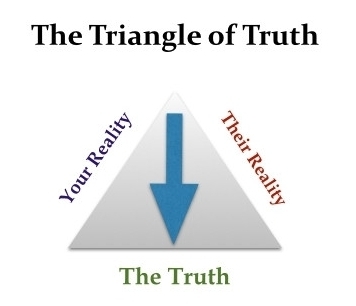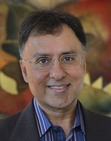The Triangle of Truth
An approach that assesses the truth of meaning of theories or beliefs in terms of the success of their practical application.
We become more pragmatic when we learn through experiencing contrasts and differences. The best outcome is when we keep what works and discard what doesn’t. We then repeat that cycle to ensure we are improving and upgrading and not becoming stale . The process is one of compromise, and too many in our society have lost that ability. The reason is that we have different opinions of what works or what is necessary. It’s our filters that keep getting in our way and the incessant need to always be right. The filters and biases obscure the true reality that exists. But our recent political history has examples of those who have been successful pragmatists – Tony Blair kept parts of Thatcher, Clinton kept parts of Reagan, and further back, Lincoln retained his fiercest rivals in his presidential cabinet. Let the other person win some times, compromise, and stay focused on the big picture of moving onward and upward. No one has a monopoly on the Truth. If anything, the truth is usually some place in between your point of view and that of the other person. Sometimes it will be closer to your side, and at others it will be closer to the other side. The true pragmatist and one with honest and loving intention, stays open to finding the right point on that scale.
The post The Triangle of Truth appeared first on Think Smarter World.




